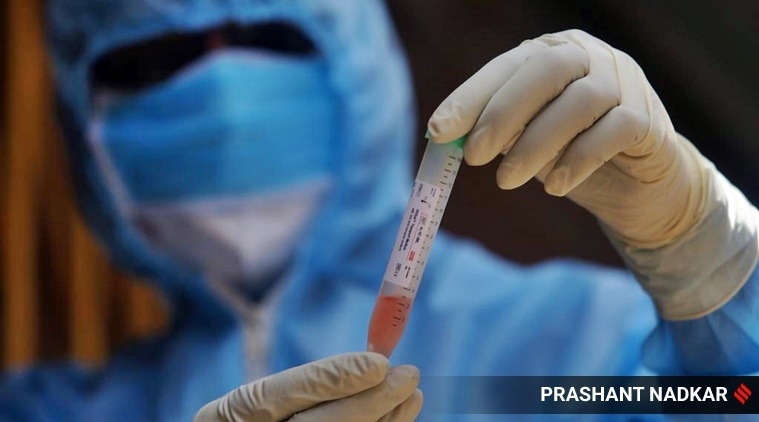 A rapid test kit can produce results in just 30 minutes.
A rapid test kit can produce results in just 30 minutes.
With 500 Rapid Testing Kits (RTKs), the Mohali administration plans to focus on hotspots in the district.
Experts however say that the health department does not have the adequate number of RTKs and testing is key to contain the spread of the virus.
Dr Indranil Banerjee, a virologist at Indian Institute of Medical Education and Research (IISER), told The Indian Express that if they had 1,000 kits, the health department could easily go for mass testing. He added that right now, the health department must focus on hotspots and widen its ambit when they have more test kits.
Talking about the RTKs, Dr Banerjee said antibody testing for COVID-19 involves conducting blood tests on people showing influenza-like illness (ILI) symptoms such as cough, cold, low grade fever, sore throat etc. in containment zones, large migration gatherings, or evacuee centers.
How RTKs work
Dr Banerjee said a rapid antibody test is conducted to determine the presence of antibodies IgM and IgG, which can be detected from 7-10 days of the onset of COVID-19 symptoms. This test can help understand an individual’s capacity to fight the infection after the virus has invaded the body.
“A rapid test kit can produce results in just 30 minutes. However, it is not recommended for diagnosis of COVID-19 infection. Although positive result indicates exposure to SARS-CoV-2, negative result does not rule out infection,” he added.
Dr Banerjee said that if the rapid antibody test yields a positive result, it should be followed by clinical assessment, hospitalisation or home isolation. In case of negative result, an RT-PCR can be conducted if warranted, or the antibody test can be repeated after 10 days.
If a person shows positive for IgM, only then may they well be actively infected. And if they show only IgG, they may well have gone through an infection and could be immune. Showing both, a person can probably be on the back end of an infection. Showing neither (but with a valid control line) could mean that a person is not exposed to the virus at all.
According to Dr Banerjee, a negative result means there’s a chance a person generated antibodies that don’t recognise the antigens that the test kit has built into it for detection. One cannot rule it out. It is also quite possible that a person has been infected but hasn’t had time to generate enough antibodies for the test to detect yet. All such kits will include a warning that negative result can’t be used to say that a person is not infected. They will also include a warning that such a kit can not be used as the last word even if they come out as positive.